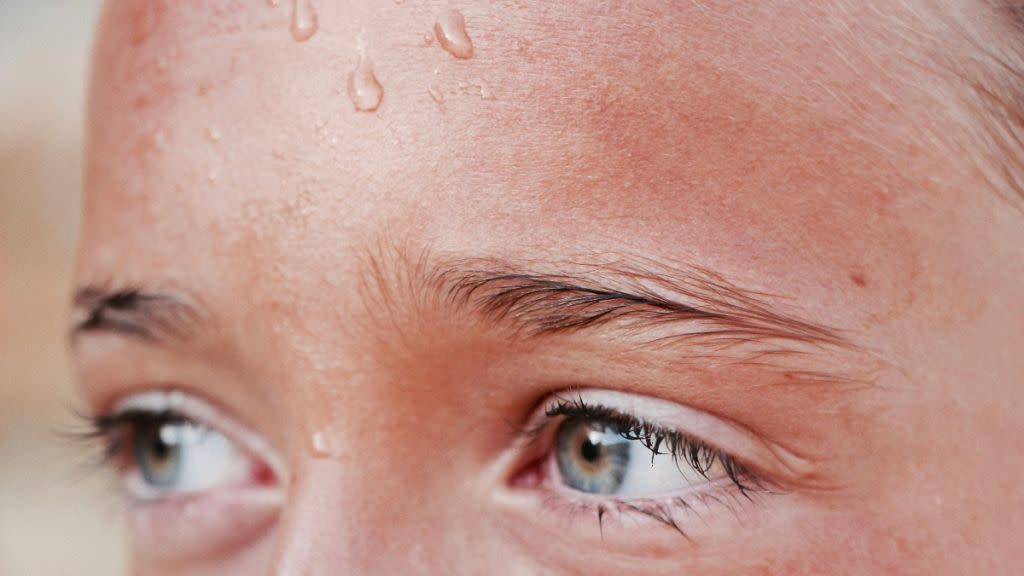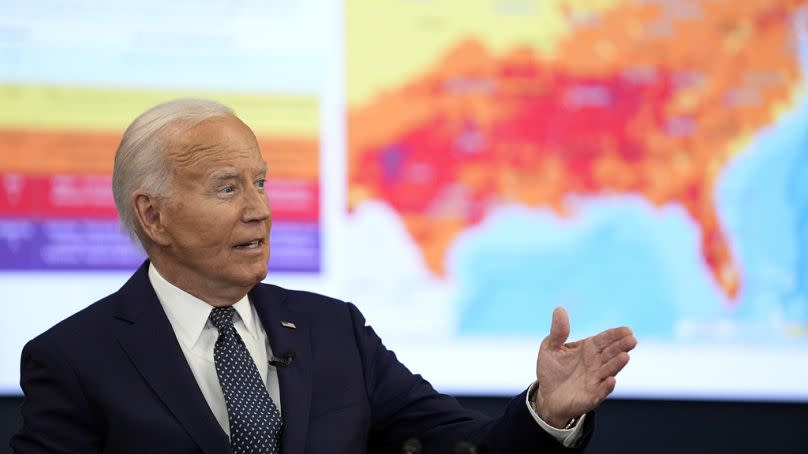‘Really stupid’: Biden bashes climate change deniers while announcing extreme heat safeguards

High temperatures across the United States are the country's leading weather-related killer - and Joe Biden is taking action.
This week, the president proposed a new rule to address excessive heat in the workplace, while tens of millions of people in the US suffer under heat advisories.
If the measure is finalised, it would protect an estimated 36 million workers across the country from injuries related to heat exposure on the job and would be the first major federal safety standard of its kind.
Currently, those most affected by excessive heat in the workplace include farmworkers, delivery and construction workers as well as landscapers and indoor workers in warehouses, factories and kitchens.
One of Biden’s five steps in his Democratic administration is addressing extreme weather and this initiative comes at a particularly difficult time while Hurricane Beryl rips through the Caribbean in an ominous sign for the summer.

Heat protection measures will improve mental health and the economy
Speaking at the Emergency Operations Centre in Washington DC, Biden blasted the Republican lawmakers who deny the existence of climate change.
“It's not only outrageous, it's really stupid. More people die from extreme heat than floods, hurricanes and tornadoes combined,” Biden said.
“These climate-fuelled extreme weather events don’t just affect people’s lives. They also cost money. They hurt the economy, and they have a significant negative psychological effect on people.”
He added that human and financial costs from climate change can’t be underestimated, saying that weather-inflicted damage last year cost the economy $90 billion (around €83bn).
It’s not just extreme weather up for discussion. Biden also announced that the Federal Emergency Management Agency (FEMA) is currently finalising a rule to factor in possible flooding risks for federal construction projects.
FEMA will also give $1 billion (about €929m) in grants to help communities deal with natural disasters.
In the coming months, Biden’s administration will hold a conference - the White House Summit on Extreme Heat - to discuss the issue at hand.
Another heatwave to follow after storms hit Italy and Switzerland
Deadly heatwaves in June? Climate scientists explain why extreme weather is battering Greece
How does Biden plan to protect workers against excessive heat?
An estimated 2,300 people in the US died from heat-related illness in 2023.
In terms of workers exposed to heat, a total of 986 lost their lives from 1992 to 2022 across all industry sectors in the country.
Construction accounted for about 34 per cent of all occupational heat-related deaths, with 334 construction workers dying due to heat exposure on the job.
As the hottest month of the year gets underway, experts warn that millions of Americans will be at greater risk of heat strokes, dangerous dehydration and heat-related heart stress.
Despite increased awareness of the risks posed to human health by high temperatures, extreme heat protections - put in place for those routinely exposed to heat index readings above 27 degrees Celsius - have lagged.
In an effort to combat this, the newly proposed rule would see employers required to identify heat hazards, develop emergency response plans related to heat illness and provide training to employees and supervisors on the signs and symptoms of such illnesses.
They would also have to establish rest breaks, provide shade and water, and heat acclimatisation - the building of tolerance to higher temperatures - for new workers.
The White House says penalties for heat-related violations in workplaces would increase significantly too.
Why are some business owners not happy with the proposals?
Heat protection laws in the US have faced steady industry opposition, including from chambers of commerce and other business associations.
Many say a blanket mandate would be difficult to implement across such a wide range of industries.
California, Colorado, Oregon, Minnesota and Washington are currently the only states with workplace standards for heat exposure.
Over the past year, Florida and Texas, both famously hot and both governed by Republicans, passed legislation preventing local governments from requiring heat protections for outdoor workers.
If the Biden administration gets its plans signed into law, the rule would override state standards, meaning that states with existing procedures to deal with heat would have to institute measures at least as stringent as the finalised federal rule.


